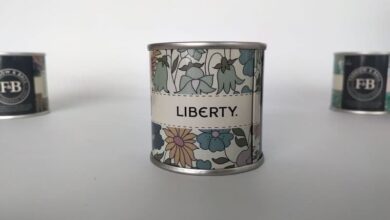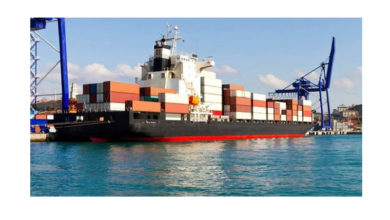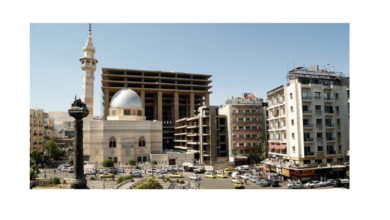Used Or New? With All The Options Available The Dilemma Thickens
There comes a time in the tides of men when some fairly difficult questions need answering; for those of us who are concerned with the printing industry the most dominantly recurring question is whether to buy new or second hand. A further conundrum has now entered the mix; should any new investment be digital or offset? Packaging printers can have their day spoilt by having to fret over whether flexo should be considered?
Loads of questions – with no easy answers, but there are ways of going about answering them, some good and some downright foolish. Mike Steele UPEX Director explains: “The first question a printer who is considering investing should ask is a personal one. What is the investment trying to achieve?” This advice is savvier than you may at first think, yet it is vital that the answer isn’t rushed. Mr. Printer – sit down and grab a piece of paper and draw the outline of a tree and write at its base what you are actually thinking or planning on doing. It could be getting a Heidelberg Speedmaster SM74 so that you can print more efficiently and increase productivity. Now follow up the branches of the tree – filling out the following. Will buying the press mean you need a new guillotine, more or better platemaking, improving or introducing a workflow, more staff, and so on. Mr. Steele puts it rather well when he says: “If you don’t think things through thoroughly with any new investment you are more likely than not to go bankrupt.”
 Do you have a business plan?
Do you have a business plan?
Buying a bigger, faster machine to solve a work congestion problem is often the prompt to investigating whether to existing plant, but very few printers have a degree in business administration and so do not have a medium term business plan. Yet prior to making any sort of capital purchase, create one even if it is scribbled on the back of an envelope. Perhaps the most important piece of business knowledge to acquire before any big spend is where, if any, profits are currently coming from and what form do these profits take?
Gathering this knowledge is crucial before any major business decision is made. For example if you are primarily a B3 house running GTOs or their equivalent, going up to B2 may seem sensible, paper doesn’t need to be cut twice (once to B3 by you or your supplier, then to A4 after printing), but if this is your main form of business you are operating fairly and squarely in the digital printing horizon; however a move up and you could be shredded by the B1 operators. Another consideration is staffing. Most people’s granny could run a GTO, but B2 and above raises the sophistication level several notches and accordingly the skill set of the staff.
A digital sheetfed B3 printer has much of the sophistication built in, so a B3 based offset printer must retain a watching brief on the digital sector. Almost invariably B3 dominated printers act as service agents and have to job out quite a bit of their client’s needs, it may be wide format posters, display printing, diecutting etc. The mark up may be small, but predictable and this is why it is important to know where your profit comes from and where future profitability may reside. Digital may well be the answer rather than incorporating more offset printing power.
So, getting to know in fine detail where your potential profit is likely to come from and after this knowledge is gained what should be your next step?
Perhaps don’t take any steps for the moment; long before the decision to invest, a printer should be building up relationships with suppliers, not only those in the sector in which he operates such as offset, but any supplier who has a presence in the production of print, be it digital, finishing such as binding and paper suppliers suggested merely by way of example. Any printer who is fixated only on price will have few friends when chill economic or trading winds blow. Being on good terms with suppliers is ‘part of thinking it through’.
Tarek Ramadan, sales manager of used digital printing suppliers Mahar Adada Establishment puts his finger on the button by saying: “We help our customers to choose the right equipment, by listening to their project and based on this information, we suggest the best possible options.”
The role of Umbrella organizations
The implications in what Mr. Ramadan is saying is echoed right across all kinds of the used equipment sector and it raises some issues of trust for the printer wishing to make a decision.
Not all dealers or apparent purveyors of used printing equipment have the integrity or business ethos of those within an organisation like UPEX. This is important and best dealt with by building long term relationships with suppliers even those with whom you may not have any immediate plans.
Umbrella organisations such as UPEX have arisen in part to establish integrity and trust. Mr. Steele explains the background of his organisation: “Any used equipment trader can join UPEX from any part of the world and we believe it is essential that we represent only reliable partners. There is a long term element to relationships and even during the recession only a small number of our members went out of business.”
All relationships depend on two way traffic. It is fair to say that most of the second hand equipment installed in the Middle East originates from Europe, though in the digital sector particularly with Hewlett Packard the Europeans may have sourced for product via the US. Europeans generally are more keen to build close working relationships with local suppliers in the Middle East than their American cousins and most work hard to create strong, reliable regional partners.
A natural clearing house
Dubai of course is the natural clearing house for all trade in the Middle East. Good communications play a key role, the airline networks set up by Emirates, Qatar and Etihad play important roles, but the quality of business practices and related legal support services, an excellent characteristic of the UAE, plays an important role as well.
White Horse Machinery has over the 25 years it has been trading gained a fine reputation for integrity and David Watson sales director puts some flesh on how its reputation has been developed: “We attend major exhibitions all over the world and also participate at local and regional events. At the recent Gulf Print and Pack we opened a new relationship with a dealer in Dubai which will strengthen an important part of our business plan providing strong post sale support, including the sale of spare parts.”
A characteristic of these larger dealerships is the way they check out local suppliers and dealers when looking to form local liaisons. Mike Steele says: “Our members will try and source engineering services locally and if spare parts can be manufactured or refurbished locally this is preferable.”
When a press goes down, getting it back up and running quickly is absolutely paramount, so building up a close network of support is a two way street. There is an old homily touted around the mid-western states of the US that goes along the lines of a good farmer is one who can sleep when the wind blows. In other words if things get tough he doesn’t have to run around in crisis management mode. So it is with good relationships.
This is probably more true of buying digital second hand than offset. With wide format machines, electronics play a much more important role perhaps rather more than offset. Software has become a pathway from which many manufacturers strive to control its machines from the time they are installed till the time they are trashed (often prematurely as the lively market in second hand providers are discovering in countries like Brazil, the Middle East and Africa.
Yet if a mechanical device is driven by software embedded on logic control boards, the software can be rewritten to address changing circumstances. The flood of recycled printing inks and their associated print heads suggest ‘own make’ is not quite so sacrosanct as original manufactures would have us believe.
A headache at the end of the day?
Yet many believe there is a strong case when buying digital it should be bought new. May be, but buying wisely may be more important. Environmental issues are certain to play a part in the next few years in any purchasing equation. The view point of the managing director of Saga Digital the regional agent for EFI VUTEK in the Middle East, Mehedi Barrarda Baby is pretty forthright.
“Buying used at the end of the day is a headache. Unlike offset where presses are made up 90% from metal and 10% electronics, digital printing machines are 90% electronics and 10% metal. The printers along with their software become obsolete very fast. We do sometimes help our customers to replace their old machines with the new one; if we buy the machine we basically use it as scrap”.
This is not a point of view everyone would agree with, but sourcing parts for a 10 year old machine or even remanufacturing a replacement requirement can struggle to be economic. But often the reason for this is because of the way machines are sold in the first place. The price the printer pays is governed by the click charge rather than the capital cost of the machine.
This brings in ramifications related to depreciation, deteriorating value. With offset the issues are pretty clear cut; almost any competent engineer can refurbish gripper seats, take the slop out of gear meshing and replace cam followers, but whether to go digital or offset, new or second hand, is dependent on the business plan and related costs, not on whether one form of technology is better than another.
One Piece of advice
So far the importance of having a strong business plan, or at the very least having some sort of strategic structure to your investment plans is discussed. In addition it made a case for developing a good working relationship with those who may be of help when it comes to building your business.
Whether to embrace all or some of the views expressed, here is one piece of advice that should be followed without reservation and that is be wary of buying via the Internet without checking the integrity of the site.
Almost invariably the site will boast of a fine machine, low impression count and a price and shipping arrangements impossible to be matched by reputable, easily traced and verified suppliers.
Though scams exist almost anywhere goods are bought and sold with the printing and graphic arts sector no exception, the problem is a long way short of a mine field – common sense is a trusty suit of armour.
Suppliers who know how
The used sector is one of constant change. Some used equipment suppliers specialise in a specific part of the industry such as finishing. The UK firm Bindery Machinery Services specialises in this area and Iain Gilchrist a director who believes the market has changed a lot over the past decade: “There are lots of machinery now available and we refurbish and make sure they are in good working order and install them in a customer’s facility and this can be almost anywhere in the world.” Mr. Gilchrist adds: “We trade in Lebanon, Jordan and Iraq as well of course, the UAE.”
Bindery equipment is reasonably complex and older kit can take some considerable time to set up or change over to a different size. “Mr. Gilchrist continues: “People turn to us for more efficient machines with faster make readies and set up times and I think we are successful because we know how it is all about introducing efficiency and smooth production flow.”
This is an important point a potential buyer of finishing equipment should grasp; often a printer needs bindery equipment that provides a supporting role so if you need a line that works perhaps only once a week or even on one monthly job, little may be gained by buying a complex high speed binding line no matter how fast it goes. It’s worth running a mini GDP (Gross Domestic Product) on your turnover and strike a balance. This is where the experience of firms like BMS is so useful in making sure you get the right machine for the job.
PinHeiros is a 13 year old UK company and it is probably more like most second hand suppliers, having a fairly broad brush range of equipment, and David Pickup a director says: “We buy machines mainly from Western Europe and North America and export them according to customer requirements.” PinHeiros had built up its expertise mainly in Asia where 75% of its revenue is generated but this is changing says Mr. Pickup: “Gulf Print and Pack has been a good show for us and we have won business in Iran and the Middle East as well as Africa. Sanctions do not affect printing equipment sales other than currency issues.
From this perspective Gulf Print and Pack was certainly a great show to get a good overview, both for the buyer and the seller. Newcomer to the show Selman Yaldi, sales manager of the German supplier Gemax Graphic Arts Machinery captures this perfectly when he says: “We received strong enquiries from potential customers mainly from Dubai and Oman and also from Africa.” Gemax recognises the importance of having an inventory of production equipment that covers both printing and finishing and generally customers prefer the quality end of the market which in effect means equipment of European and Japanese origin.
Firms like these have to be excellent intelligence gatherers, knowing where good equipment is, who has kit to sell and there will be times when good old fashion savvy plays a part and take in to stock a good piece of kit knowing there will be a good demand for it. The better the intelligence, the more successful a company becomes.
Taking out the trading highs and lows is probably where the challenge is and with 25 years of trading White Horse Machinery (WHM) also of the UK is well versed to handle challenges. David Watson its sales director explains what he thinks is the important element keeping WHM ahead of a chasing pack: “We strive to develop strategic alliances and partnerships with not only our customers but also with other used machinery dealers in the world today. We don’t just deal with printing presses, but rather offer complete solutions and may include prepress and finishing solutions.”
Most printers in Europe when considering an additional press almost invariably think of B2 and B1 but one company that recognise this isn’t quite the scenario in the Middle East is BBR Graphics yet another UK player. Its MD Steve McDonough says: “In the Middle Eat people are more interested in the B3 market but at the newer end with modern GTOs and small Speedmasters. We completely refurbish our machines and we are finding the market really picking up.”
In some ways it needed to; the heady days of the 1980s are well gone. In part it’s because of the sophistication and productivity of modern equipment, but also the coming of age of digital printing systems both sheet fed and wide format.
The market for second hand digital equipment has yet to mature so opportunities exist for both the buyer and the seller. Working out of the Al Qusais area of Dubai in the wide format sector is Sign Supplies Digital (Part of Mahar Adada Establishment). Agents for Roland DG in the Lebanon and Nigeria, the company has established a strong second hand business in sort after machines both for indoor and outdoor use. Ahmad Ariss its operations and technical manager sees the importance of working locally. “We often buy local machines when owners decide to get a new one and we refurbish them and these are eagerly sought after.”
Rich and not so rich!
The market is two tier in the sense of market penetration; UAE and Saudi Arabia prefer machines at the upper end and here sales of refurbished Vuteks are very strong. Tarek Ramadan sales manager of Maher Adada Establishment knows how important advice and assistance is with clients in the more emerging markets such as Lebanon: “Saudi and UAE clients know pretty well what they want, in Lebanon we need to help them buy machines that will satisfy the market they are in. Often they have yet to develop a solid base of clients.”
For his part Abbas Hussein managing director of Liberty Printing Press Machinery says the key for a successful purchase is to deal with reputable companies that have a transparent track record. Hussein says, “Contrary to general notion there are not many reputable used equipment dealers around and printers are generally aware of them. We have been in the market for 13 years and we have offices in Sharjah, Pakistan and UK.”
Abbas Hussain, Managing Director of Liberty Printing Press Machinery LLC, believes the key to successful purchasing of used equipment is to deal with reputable companies that have a transparent track record. Hussain says, “Although there are numerous used printing equipment dealers in the UAE market, the printers are quite conscious to only deal with the most reputable suppliers. Liberty supplies pre press, offset, finishing equipment and spare parts. We have been in the UAE for 13 years and also have offices in Pakistan and the UK.”
Liberty has a 10000 square feet warehouse in Sharjah to stock equipment and supplies. “We source our machinery from the UK and other European countries. In Europe, printers use original spare parts when required and machines are maintained to original manufacturer standard. Whereas, in the UAE, printers often use spare parts originating from China and India or fabricated, in addition, the standard of maintenance is very poor in comparison to Europe. Consequently, Liberty never purchases local machines nor engages in part exchange deals.” According to Hussain, the most distinguishing characteristic of a reliable dealer is efficient after sales service. “We offer a six months guarantee on all our equipment after which we provide regular maintenance at a competitive fee. Although the demand in the UAE is primarily for single and 2 colour Heidelberg presses, Liberty has a reputation for supplying high quality multi colour Heidelberg machines to order.”
“There is a misconception that due to the global recession there is an abundance of used equipment available in Europe at bargain prices. In reality, good quality equipment below the market price is a rare occurrence. So if someone is offering a ridiculous price, which seems too good to be true, it probably is.” With so many dealers offering used equipment on the Internet, one wonders if printers are better off buying directly from websites. Hussein certainly believes this is not the case. “Buying through the Internet is a highly risky business due to some fraudulent parties. And even if a buyer gets delivery of the equipment, there is no telling how much it will cost to get the machinery in perfect running order. Alternatively, when dealing with a reputable local company like Liberty, the buyer is assured of a fixed price with no hidden extras and the peace of mind of their machinery delivered in perfect working order together with a six months guarantee.”
Keeping it narrow
Keeping the wide format down to 1.6 metres or less has proved to be a good move for another Dubai company, Simple Media Solutions. Since 2005 it has sold over 200 machines and K S Rao, sales director says: “The older HP machines such as 5000 and 5500 are still very popular and this is not just down to price. They are really tough, simple to work and consumables are widely available.”
Another factor is these machines have Windows based operating systems and are less prone to become obsolete on software grounds. Often it is features such as this that enables a second hand market to grow. Triple is a Jordan based supplier and it imports both offset and digital equipment from its Netherlands office usually buying kit at auctions. Eyad Sadek is general manger and he speaks of his business strategy: “We go for Kodak and Heidelberg equipment and after purchase in Europe we crate them up and bring them in to Dubai or Jordan for ready to distribute them to our different markets.”
Turmoil in Iraq, formerly its biggest market, plus a government law that banned the import of second hand equipment has had an impact, but Eyad knows his clients and his market: “When it comes to digital, European equipment is well maintained and in good condition with Konica Minolta and Canon preferred. Xerox less so; spare parts are more expensive and technical support not widely available.”
It is clear that there is a preference in the Middle East for second hand and the reasons for this are not hard to find. A combination of cheap labour, lower capital costs and fragile technical support can bring considerable risk in buying new. This does mean that second hand high end digital presses are in demand and Eyad says he sells 30 machines a month.
Good bye solvent, Good Bye alcohol
The future is difficult to predict; it might seem smart to sell solvent based wide format printers that are no longer acceptable in Western markets, but it is worth noting that the ban on certain solvents is because they are a health hazard, and an owner may have to live with his conscience if a worker goes down with a brain tumour through operating a machine in poorly ventilated area. Sellers should take this factor on board when helping a customer make a decision on a future purchase whether the machine it is an alcohol damped offset press or a wide format digital machine.




